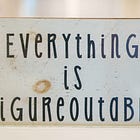Mentis Monday: Stress Awareness Month – Building Resilience
By Rubi Pelayo with Charlotte Hajer
NAPA VALLEY, Calif. — April is Stress Awareness Month — a time to pause, reflect and recognize the impact stress has on our lives. In today’s fast-paced world, many of us carry stress like a second skin: It’s with us even when we don’t realize it. While some stress is a normal and even necessary part of life, unchecked and prolonged stress can wear us down mentally, physically and emotionally. But there’s good news: By deepening our understanding of stress and building resilience, we can take meaningful steps toward a more balanced, sustainable way of living.
What Is Stress, Really?
Stress is our body’s natural response to perceived threats — an instinct that once helped our ancestors flee wild animals and survive harsh environments. While we may no longer face saber-toothed tigers, our modern lives are filled with different types of pressures that can trigger the same primal “fight or flight” response. Running late to a meeting, worrying about an important deadline or navigating complex social situations can all spark stress reactions in the body.
"You are more than your to-do list. You are a human being, not a human doing." — Rubi Pelayo, LCSW, in a column for Mentis
Stress shows up in many ways. Physically, it might look like headaches, muscle tension or insomnia. Emotionally, it can manifest as irritability, anxiety or a sense of being overwhelmed. Behaviorally, it might lead to changes in appetite, withdrawal from social interactions or even increased reliance on substances like alcohol. When these symptoms become chronic, they can interfere with our daily lives and take a toll on our mental health.
Not All Stress Is Bad
It’s important to remember that not all stress is harmful. In fact, short bursts of “positive stress” can sharpen our focus, boost motivation and help us tackle challenges with energy and clarity. Think of the adrenaline rush you might feel in the last mile of a race, or the final push before a deadline — those moments can propel us forward and build confidence.
The problem arises when stress is constant, unmanaged and starts to pile up without adequate recovery. That’s when it can tip from motivating to damaging, and we find ourselves in a cycle that’s hard to break.
The Impact on Mental Health
Prolonged stress doesn’t just affect how we feel in the moment—it also impacts how we think and behave over time. Chronic stress can create a domino effect: Difficulty concentrating leads to underperformance, which can lead to negative self-talk, social withdrawal and, eventually, more serious mental health issues like depression, anxiety or substance dependence.
We often underestimate how much our mental health is tied to the way we manage stress. When left unchecked, stress can erode our resilience and interfere with the joy and connection that give our lives meaning.
Managing Stress in a Busy World
So how do we manage stress effectively in a world that never seems to slow down? Here are some practical and compassionate strategies:
Engage in activities that bring you joy. Whether it’s painting, gardening, running or listening to music, hobbies and interests help us decompress and stimulate feel-good chemicals like dopamine.
Set boundaries. It’s okay to say no. Understanding your limits—and respecting them—is essential to preserving energy and emotional well-being.
Lean on your support network. Reach out to friends, family or colleagues. Share what you’re going through. Simply talking about stress can help diffuse it and remind us that we’re not alone.
Practice intentional time management. Use planners, to-do lists or digital tools to organize your day. Carving out focused work time and setting boundaries around devices can improve both productivity and peace of mind.
Redefine your relationship with rest. We live in a society that celebrates productivity, and many of us have internalized the belief that rest must be “earned.” But rest is not a luxury — it’s a necessity. Reflect on what messages you received about rest growing up. Did you see others model it? Challenge any beliefs that associate rest with laziness. Rest is a form of self-respect.
Building Resilience
Resilience isn’t about being immune to stress. It’s about bouncing back — about facing life’s challenges and emerging wiser, stronger, and more grounded. Resilient people experience stress just like everyone else, but they’ve developed tools to navigate it in healthy ways. They draw on past experiences, lean into their support systems and practice self-compassion when things don’t go as planned.
The more we nurture our resilience, the more prepared we are for future stressors. This doesn’t mean we won’t stumble, but we’ll know how to find our footing again.
Slowing Down in a Hustle Culture
In a society that often equates self-worth with productivity, it can feel radical to slow down. But building a fulfilling, balanced life means being able to step off the hamster wheel, at least once in a while, and examining what success really looks like. Are we chasing goals that align with our values — or ones dictated by comparison and social pressure?
Here are some reflections to explore:
What is something I enjoy that I haven’t made time for recently?
What are my beliefs around productivity and how are they serving me?
Do I give myself permission to rest, or do I feel guilty for it?
Schedule small, meaningful breaks — a lunch with a friend, a weekly movie night, a 30-minute walk. And unplug from social media when possible. The endless scroll can fuel comparison and reinforce the harmful belief that we’re “falling behind.”
Give Yourself Grace
Finally, practice self-compassion. Instead of focusing on what you didn’t finish today, acknowledge what you did accomplish. You are more than your to-do list. You are a human being, not a human doing.
As we honor Stress Awareness Month, let’s commit to treating ourselves with more care, more patience and more grace. Let’s build resilience not through perfection, but through presence. Because in this fast-paced world, slowing down just might be the bravest thing we can do.
If you or someone you love is experiencing a mental health crisis, call or text the 988 Suicide and Crisis Lifeline.
If you or someone you love needs mental health or wellness support, please visit our Mentis Community and Youth Resource Database. Mentis is one of Napa’s oldest nonprofits and provides bilingual, affordable mental health services to people of every age and income level.
—
Rubi Pelayo, LCSW is the Assistant Clinical Manager for Youth Programs at Mentis. She holds a master’s degree in social work and has been active in the field of social services and mental health since 2016. Rubi has experience in providing therapy to adults, couples and youth of all ages, from elementary to college, in outpatient and school settings. As a bilingual and bicultural social worker, she firmly believes culturally competent care, education and representation are key to breaking the mental health stigma in the Latino community.
Charlotte Hajer is Mentis’ Development Director. She holds a Ph.D. in cross-cultural mental health and loves to write about the way individuals experience and navigate the social and cultural world around them.













